Floating Turbidity Barrier Installation – Understanding the Process
The purpose of a floating turbidity barrier is to prevent the migration of sediment from a worksite into nearby waterways. Offering a wide range of benefits, they are commonly used during dredging, pile driving, remediation, and shoreline restoration. However, they are only effective if assembled, deployed, and anchored correctly. Having a thorough understanding of the process can help ensure your next project runs smoothly.
Scouting a Location
First, you need to find a spot along the coastline with enough area to lay down two sections of the floating turbidity barrier. Inspect the area for anything sharp or rough material that could puncture or scratch the lining. There are certain situations where there is no option but to lay out the barrier on abrasive surfaces like asphalt or concrete. If this is the case, heavy tarps should be put down before beginning the installation of the barrier.
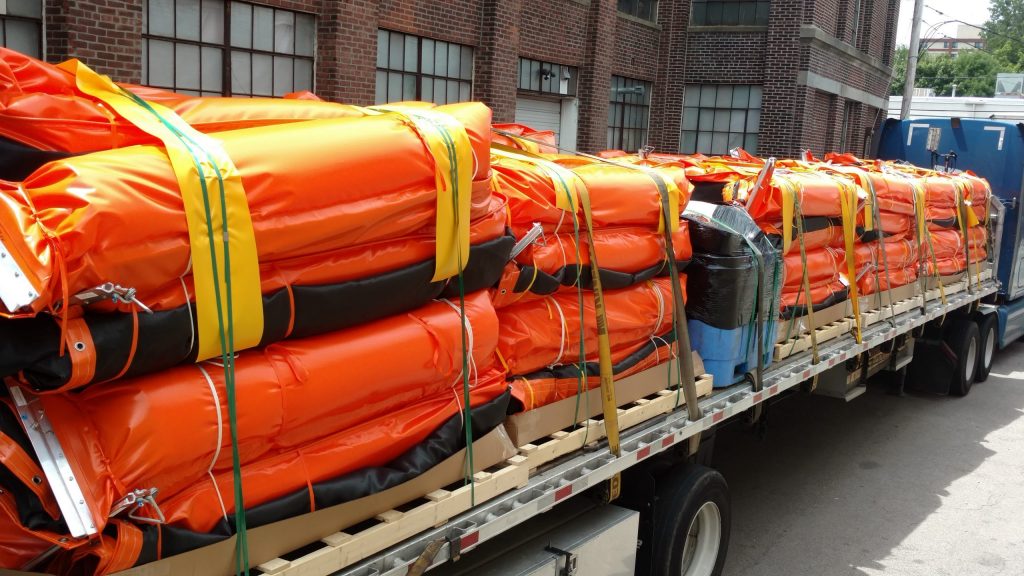
Unpacking Pallets
Now that you’ve selected an area, unpack the floating turbidity barrier. The barriers are typically shipped on pallets and wrapped in plastic. Inspect the shipment for obvious damage before carefully removing the plastic wrap and rope holding the curtain in place. Rushed and reckless removal of the plastic and tie-downs could result in a damaged turbidity barrier.
Turbidity barriers are usually folded and stacked in a way that resembles an accordion. Unfold the curtain and place it over the previously selected location. Unfold each section end-to-end with the previous section. Remove the furling lines at the ends and stretch out the skirt top before connecting each end by laced grommets or chain.
Securing Connections
Some variations of the floating turbidity barrier are connected and locked into place via slide connectors. For these barriers, referred to as Type 2 and Type 3 barriers, slide the connectors together and insert toggle pins into the lock pinholes of the barrier.
Once the grommet or slide connections are secure, connect shackles to the stress plates located on the bottom of each curtain section. After connections are secure, the skirt must be folded up underneath the floating elements of the floating turbidity barrier. The furling lines that were previously removed must then be tied back around the float and skirts. Bundle the sections along the coast until every section is tethered together.
Deploying & Anchoring The Floating Turbidity Barrier
Each section underneath the floating elements should be folded and secured while a trained professional tows the floating turbidity barrier out into the water. Once you’ve reached your final destination, it’s time to anchor.
Each application of floating turbidity barriers must have a well-structured anchoring strategy that takes wind, waves, current, and other external factors into account. Engineers use complex analysis software to determine the best plan of attack. The right type of anchor for the job is included in this complex analysis. Some anchors fare better when the waterway’s floor is rocky while others excel in loose soil. Others require the waterway’s floor to consist of solid silt, mud, or sand.
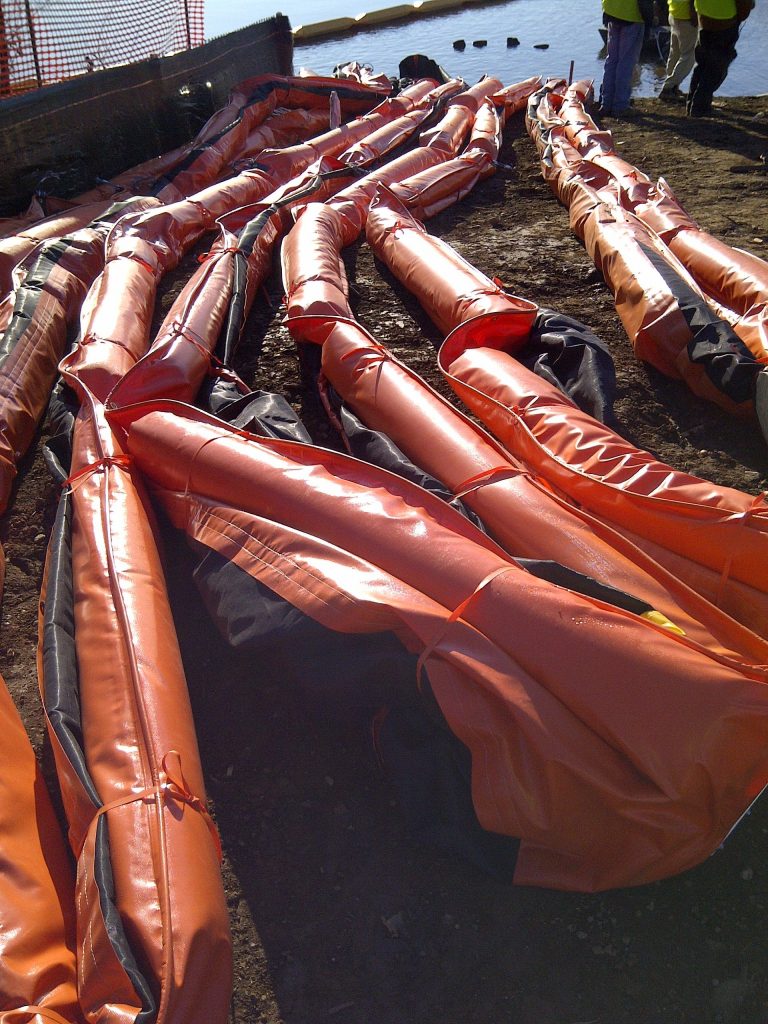
When the waterway has a current, anchors must be deployed before moving the floating turbidity barrier to its final destination. When conditions are calm, you can set the anchors after you get into position. At the end of each barrier section, there are anchor points at the connection point and the center of each section of the barrier. Once anchors are tied, cut the ties holding the skirt and allow it to fall. Depending on the current, adjustments may need to be made afterward.
Industry-Standard Floating Turbidity Barrier
There are experts in the field ready to help with all your sediment control needs. IWT Cargo-Guard has been at the forefront in the evolution of turbidity barriers and silt curtains. We are a design innovator of durable turbidity barriers and silt curtains that can withstand even the harshest conditions.
Founded with the purpose of developing products to protect our environment, IWT Cargo-Guard’s mission is to provide the most cost-effective products for your project. By quickly analyzing the products and services required for the project, we become an extension of your estimating department.
We carry all types of turbidity barriers as well as containment booms, marine accessories, and more. Contact us and our team will work with you to ensure you have exactly what you need to keep your project in compliance and on track.
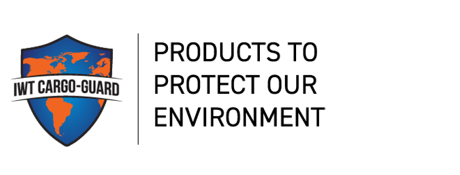
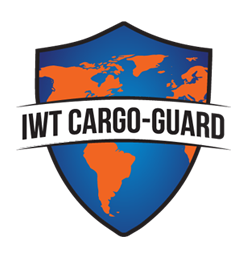




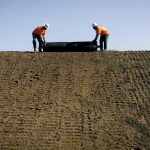
I loved your blog article.Really thank you! Keep writing.
Cuando tenga dudas sobre las actividades de sus hijos o la seguridad de sus padres, puede piratear sus teléfonos Android desde su computadora o dispositivo móvil para garantizar su seguridad. Nadie puede monitorear las 24 horas del día, pero existe un software espía profesional que puede monitorear en secreto las actividades de los teléfonos Android sin avisarles.
Cuando intenta espiar el teléfono de alguien, debe asegurarse de que no encuentren el software una vez que esté instalado.
Thanks for sharing. I read many of your blog posts, cool, your blog is very good.
indian pharmacy https://indiaph24.store/# best india pharmacy
indian pharmacy online
purple pharmacy mexico price list: mexico pharmacy – mexican online pharmacies prescription drugs
mexican drugstore online: mexican drugstore online – п»їbest mexican online pharmacies
canada rx pharmacy [url=http://canadaph24.pro/#]Prescription Drugs from Canada[/url] reddit canadian pharmacy
http://indiaph24.store/# mail order pharmacy india
https://ciprofloxacin.tech/# cipro 500mg best prices
effexor and tamoxifen [url=http://nolvadex.life/#]tamoxifen pill[/url] buy tamoxifen
buy cytotec pills: buy cytotec over the counter – Abortion pills online
http://finasteride.store/# get cheap propecia pill
buy cytotec online fast delivery [url=http://cytotec.club/#]buy cytotec online fast delivery[/url] buy cytotec over the counter
http://ciprofloxacin.tech/# ciprofloxacin 500 mg tablet price
ciprofloxacin order online [url=http://ciprofloxacin.tech/#]cipro pharmacy[/url] ciprofloxacin mail online
http://finasteride.store/# buying generic propecia price
arimidex vs tamoxifen bodybuilding: tamoxifen endometrium – tamoxifen cost
cytotec abortion pill [url=http://cytotec.club/#]п»їcytotec pills online[/url] buy cytotec
http://nolvadex.life/# cost of tamoxifen
lisinopril 7.5 mg [url=https://lisinopril.network/#]lisinopril 20 mg brand name[/url] cheapest lisinopril 10 mg
cipro 500mg best prices: ciprofloxacin mail online – buy generic ciprofloxacin
http://cytotec.club/# buy cytotec
buy cytotec pills [url=https://cytotec.club/#]cytotec abortion pill[/url] buy cytotec pills online cheap
http://finasteride.store/# order propecia tablets
http://finasteride.store/# propecia for sale
zestril 5 mg tablet [url=http://lisinopril.network/#]price of lisinopril[/url] buying lisinopril online
lisinopril 5 mg brand name: zestril generic – lisinopril comparison
https://cytotec.club/# cytotec abortion pill
lisinopril generic price [url=http://lisinopril.network/#]buy lisinopril online no prescription[/url] lisinopril online usa
buy cipro cheap: ciprofloxacin mail online – buy ciprofloxacin
http://nolvadex.life/# buy nolvadex online
https://lisinopril.network/# 10 mg lisinopril tablets
cipro for sale [url=http://ciprofloxacin.tech/#]buy generic ciprofloxacin[/url] buy cipro online canada
tamoxifen breast cancer prevention [url=http://nolvadex.life/#]effexor and tamoxifen[/url] tamoxifen dose
https://cytotec.club/# buy cytotec over the counter
ciprofloxacin generic price: ciprofloxacin over the counter – ciprofloxacin
http://cytotec.club/# Misoprostol 200 mg buy online
propecia buy [url=http://finasteride.store/#]order cheap propecia pill[/url] order cheap propecia without prescription
Can you be more specific about the content of your article? After reading it, I still have some doubts. Hope you can help me.
does tamoxifen cause bone loss: clomid nolvadex – tamoxifen for gynecomastia reviews
ciprofloxacin [url=https://ciprofloxacin.tech/#]buy cipro online without prescription[/url] purchase cipro
https://finasteride.store/# cost generic propecia price
https://cytotec.club/# buy cytotec over the counter
buy misoprostol over the counter [url=http://cytotec.club/#]buy cytotec over the counter[/url] buy misoprostol over the counter
cipro: cipro generic – ciprofloxacin
ciprofloxacin over the counter [url=https://ciprofloxacin.tech/#]cipro 500mg best prices[/url] purchase cipro
http://finasteride.store/# cost of generic propecia online
https://cytotec.club/# order cytotec online
lisinopril online without a prescription [url=http://lisinopril.network/#]lisinopril pills for sale[/url] buy lisinopril online
cipro 500mg best prices: buy cipro – cipro ciprofloxacin
http://lisinopril.network/# 40 mg lisinopril for sale
tamoxifen and osteoporosis [url=https://nolvadex.life/#]tamoxifen citrate[/url] is nolvadex legal
cost generic propecia without rx: buy propecia without rx – get cheap propecia tablets
https://cytotec.club/# buy cytotec in usa
cost of propecia pill [url=http://finasteride.store/#]cost cheap propecia no prescription[/url] buy cheap propecia prices
http://ciprofloxacin.tech/# cipro 500mg best prices
https://finasteride.store/# get propecia without rx
cost of lisinopril 40mg [url=http://lisinopril.network/#]buy lisinopril 2.5 mg online[/url] zestril 10mg price
http://levitrav.store/# Generic Levitra 20mg
https://cenforce.pro/# order cenforce
п»їkamagra [url=https://kamagra.win/#]kamagra oral jelly[/url] Kamagra tablets
Vardenafil buy online: Cheap Levitra online – Vardenafil online prescription
https://viagras.online/# Viagra online price
https://cenforce.pro/# cenforce for sale
buy Kamagra [url=http://kamagra.win/#]buy kamagra online[/url] buy Kamagra
Buy Vardenafil online: Levitra generic price – Levitra online USA fast
Levitra online USA fast: Cheap Levitra online – Vardenafil price
http://kamagra.win/# Kamagra 100mg price
Cialis over the counter [url=https://cialist.pro/#]Buy Tadalafil 20mg[/url] cialis for sale
Levitra online pharmacy: Buy Vardenafil 20mg – Levitra 20 mg for sale
Viagra online price [url=http://viagras.online/#]viagras.online[/url] order viagra
http://levitrav.store/# Levitra 10 mg best price
Cenforce 150 mg online: cenforce.pro – buy cenforce
https://viagras.online/# Viagra tablet online
buy kamagra online usa [url=https://kamagra.win/#]kamagra[/url] buy kamagra online usa
https://cenforce.pro/# Cenforce 100mg tablets for sale
http://cialist.pro/# Cheap Cialis
cenforce.pro: Purchase Cenforce Online – order cenforce
Levitra 20 mg for sale [url=https://levitrav.store/#]Vardenafil online prescription[/url] Buy Vardenafil 20mg
Cialis 20mg price in USA: cialist.pro – Tadalafil Tablet
https://viagras.online/# buy Viagra online
https://pharmcanada.shop/# best canadian pharmacy
prescription drugs online [url=http://pharmworld.store/#]pharm world[/url] canadian pharmacy coupon
https://pharmcanada.shop/# recommended canadian pharmacies
canadian pharmacy 24h com safe: canadian pharmacy sarasota – canadian pharmacy india
https://pharmmexico.online/# mexican mail order pharmacies
canada pharmacy not requiring prescription [url=http://pharmworld.store/#]online pharmacy[/url] canadian pharmacy world coupon
77 canadian pharmacy: northern pharmacy canada – thecanadianpharmacy
mexican pharmaceuticals online: mexico drug stores pharmacies – medicine in mexico pharmacies
best rated canadian pharmacy: rate canadian pharmacies – canadapharmacyonline legit
india pharmacy [url=http://pharmindia.online/#]indian pharmacy[/url] Online medicine home delivery
https://pharmcanada.shop/# canadian pharmacy uk delivery
canadian pharmacy phone number: canadian pharmacy tampa – canada pharmacy reviews
india online pharmacy [url=http://pharmindia.online/#]indian pharmacies safe[/url] indian pharmacy paypal
http://pharmnoprescription.icu/# canada prescription online
canadian pharmacy world coupon: prescription drugs from canada – foreign pharmacy no prescription
canadian pharmacy reviews: onlinecanadianpharmacy – my canadian pharmacy
best online pharmacy that does not require a prescription in india [url=http://pharmnoprescription.icu/#]pharmacy no prescription required[/url] cheap prescription drugs online
http://pharmcanada.shop/# canada ed drugs
canada prescriptions by mail: medications online without prescription – no prescription needed online pharmacy
best online pharmacy that does not require a prescription in india: pharmacy no prescription – canada prescriptions by mail
indianpharmacy com [url=http://pharmindia.online/#]reputable indian online pharmacy[/url] indian pharmacy paypal
https://pharmnoprescription.icu/# cheap prescription medication online
neurontin without prescription: neurontin online usa – neurontin tablets uk
buy doxycycline online uk [url=http://doxycyclinea.online/#]where to purchase doxycycline[/url] buy doxycycline online without prescription
http://gabapentinneurontin.pro/# 300 mg neurontin
prednisone sale: prednisone cost us – buy prednisone without rx
zithromax capsules: average cost of generic zithromax – zithromax antibiotic without prescription
prednisone cream [url=http://prednisoned.online/#]prednisone 5mg over the counter[/url] cheap generic prednisone
amoxicillin 500mg capsule cost: buy amoxicillin 500mg – amoxicillin 500 mg price
https://doxycyclinea.online/# doxycycline generic
neurontin 100 mg cost: neurontin 500 mg – neurontin 1000 mg
neurontin 150mg: neurontin 800 mg pill – where can i buy neurontin from canada
gabapentin online: neurontin 100mg tablet – neurontin brand name 800 mg
prednisone 20 mg tablet price [url=http://prednisoned.online/#]prednisone cream[/url] prednisone 40mg
amoxicillin 500mg over the counter: generic amoxicillin cost – how to get amoxicillin
generic doxycycline: doxy – doxycycline without prescription
http://prednisoned.online/# prednisone 10 mg tablets
canadian online pharmacy prednisone [url=http://prednisoned.online/#]prednisone buying[/url] prednisone 5 mg brand name
amoxicillin 875 125 mg tab: price of amoxicillin without insurance – amoxicillin 500mg without prescription
http://prednisoned.online/# order prednisone 10mg
prednisone 10 mg coupon: prednisone 5mg daily – price of prednisone 5mg
prednisone 5mg capsules [url=https://prednisoned.online/#]prednisone 40 mg price[/url] 60 mg prednisone daily
prednisone 15 mg daily: prednisone prescription for sale – buy prednisone from india
http://prednisoned.online/# cost of prednisone 5mg tablets
zithromax 500mg price in india [url=https://zithromaxa.store/#]zithromax capsules[/url] azithromycin zithromax
doxycycline 100mg dogs: doxycycline 100mg price – doxycycline 100mg online
prednisone steroids: purchase prednisone no prescription – prednisone pill
https://amoxila.pro/# amoxicillin 500 mg for sale
prednisone prescription online [url=http://prednisoned.online/#]prednisone 50 mg buy[/url] prednisone 10mg buy online
prednisone where can i buy: prednisone 2 mg – purchase prednisone from india
buy prednisone without rx: buy prednisone without prescription – prednisone purchase canada
http://zithromaxa.store/# buy zithromax
neurontin 100mg capsule price [url=https://gabapentinneurontin.pro/#]neurontin 500 mg[/url] where can i buy neurontin from canada
prednisone daily use: average cost of prednisone – buy prednisone tablets uk
where can i purchase zithromax online: zithromax 500mg – zithromax cost
https://zithromaxa.store/# zithromax online usa
purchase amoxicillin 500 mg [url=http://amoxila.pro/#]generic for amoxicillin[/url] amoxicillin 825 mg
neurontin price uk: neurontin coupon – neurontin uk
https://amoxila.pro/# price of amoxicillin without insurance
order prednisone [url=http://prednisoned.online/#]where can i order prednisone 20mg[/url] prednisone 10mg
buy amoxicillin online mexico: amoxicillin 1000 mg capsule – buy amoxicillin
how to get zithromax online: where can i get zithromax – zithromax 500 mg lowest price pharmacy online
https://amoxila.pro/# buy cheap amoxicillin online
zithromax z-pak price without insurance [url=http://zithromaxa.store/#]how to get zithromax over the counter[/url] generic zithromax 500mg india
2000 mg neurontin: neurontin 300mg caps – neurontin generic brand
generic doxycycline: purchase doxycycline online – buy doxycycline without prescription
https://amoxila.pro/# amoxicillin for sale
purchase amoxicillin online [url=http://amoxila.pro/#]buy amoxicillin 500mg online[/url] prescription for amoxicillin
generic for amoxicillin: amoxicillin 750 mg price – where to buy amoxicillin pharmacy
https://prednisoned.online/# prednisone 20 mg without prescription
200 mg doxycycline: doxycycline monohydrate – doxycycline 100mg
zithromax 500 tablet [url=http://zithromaxa.store/#]zithromax prescription in canada[/url] zithromax 500 tablet
zithromax pill: order zithromax over the counter – zithromax capsules
zithromax without prescription: zithromax over the counter – zithromax for sale cheap
http://zithromaxa.store/# zithromax for sale us
zithromax online usa [url=http://zithromaxa.store/#]azithromycin zithromax[/url] zithromax online
prednisone uk buy: cheapest prednisone no prescription – prednisone best prices
https://gabapentinneurontin.pro/# neurontin tablets
neurontin 300 mg cost [url=http://gabapentinneurontin.pro/#]buy generic neurontin[/url] cheap neurontin
zithromax online usa no prescription: buy zithromax online fast shipping – buy zithromax online cheap
doxycycline 100mg: buy doxycycline online 270 tabs – where to get doxycycline
buy zithromax: where can i get zithromax – zithromax capsules price
amoxicillin without rx [url=http://amoxila.pro/#]antibiotic amoxicillin[/url] amoxicillin 500mg capsules price
http://doxycyclinea.online/# doxycycline 150 mg
https://mexicanpharmacy1st.com/# mexico drug stores pharmacies
reputable mexican pharmacies online: buying from online mexican pharmacy – best online pharmacies in mexico
mexican drugstore online [url=http://mexicanpharmacy1st.com/#]mexico drug stores pharmacies[/url] mexican rx online
mexican drugstore online: mexico drug stores pharmacies – mexico drug stores pharmacies
http://mexicanpharmacy1st.com/# mexican pharmacy
mexican mail order pharmacies [url=https://mexicanpharmacy1st.com/#]mexican pharmaceuticals online[/url] pharmacies in mexico that ship to usa
buying prescription drugs in mexico online: mexican online pharmacies prescription drugs – mexico pharmacy
buying prescription drugs in mexico online: buying prescription drugs in mexico online – best online pharmacies in mexico
http://mexicanpharmacy1st.com/# buying from online mexican pharmacy
best online pharmacies in mexico [url=http://mexicanpharmacy1st.com/#]buying from online mexican pharmacy[/url] mexican mail order pharmacies
mexico drug stores pharmacies: mexico drug stores pharmacies – buying from online mexican pharmacy
https://mexicanpharmacy1st.com/# buying from online mexican pharmacy
reputable mexican pharmacies online: pharmacies in mexico that ship to usa – medicine in mexico pharmacies
п»їbest mexican online pharmacies [url=http://mexicanpharmacy1st.com/#]mexican drugstore online[/url] mexican mail order pharmacies
buying prescription drugs in mexico online: mexico pharmacy – medication from mexico pharmacy
https://mexicanpharmacy1st.com/# buying from online mexican pharmacy
https://mexicanpharmacy1st.online/# buying from online mexican pharmacy
mexican rx online: mexican online pharmacies prescription drugs – medicine in mexico pharmacies
mexican drugstore online [url=http://mexicanpharmacy1st.com/#]mexico drug stores pharmacies[/url] buying from online mexican pharmacy
buying prescription drugs in mexico: best mexican online pharmacies – best mexican online pharmacies
https://mexicanpharmacy1st.online/# mexican pharmacy
buying prescription drugs in mexico online [url=https://mexicanpharmacy1st.online/#]mexican border pharmacies shipping to usa[/url] mexico drug stores pharmacies
mexican online pharmacies prescription drugs: buying prescription drugs in mexico online – mexican pharmaceuticals online
http://mexicanpharmacy1st.com/# mexico drug stores pharmacies
mexican online pharmacies prescription drugs: best mexican online pharmacies – mexico drug stores pharmacies
medicine in mexico pharmacies [url=https://mexicanpharmacy1st.com/#]buying prescription drugs in mexico[/url] medication from mexico pharmacy
https://mexicanpharmacy1st.com/# buying from online mexican pharmacy
https://mexicanpharmacy1st.shop/# mexico drug stores pharmacies
medicine in mexico pharmacies: medicine in mexico pharmacies – purple pharmacy mexico price list
medicine in mexico pharmacies: mexico drug stores pharmacies – mexican border pharmacies shipping to usa
mexican pharmaceuticals online: mexico drug stores pharmacies – buying from online mexican pharmacy
reputable mexican pharmacies online [url=https://mexicanpharmacy1st.online/#]buying prescription drugs in mexico online[/url] mexican border pharmacies shipping to usa
best mexican online pharmacies: mexico pharmacy – reputable mexican pharmacies online
medicine in mexico pharmacies [url=https://mexicanpharmacy1st.com/#]medication from mexico pharmacy[/url] mexican border pharmacies shipping to usa
where can i get generic clomid without rx: can i buy cheap clomid tablets – how to get generic clomid without dr prescription
get generic clomid [url=http://clomiphene.shop/#]where to get clomid without rx[/url] cost generic clomid pills
http://gabapentin.club/# neurontin 200 mg tablets
http://lisinopril.club/# lisinopril 5mg cost
propecia without prescription: cost of propecia for sale – cost generic propecia tablets
propecia [url=http://propeciaf.online/#]cost generic propecia without prescription[/url] cheap propecia online
how much is neurontin: neurontin 900 mg – 800mg neurontin
https://gabapentin.club/# neurontin 3
can i order lisinopril over the counter: how much is lisinopril 10 mg – lisinopril 104
http://gabapentin.club/# neurontin cream
Cytotec 200mcg price [url=https://cytotec.xyz/#]buy cytotec online fast delivery[/url] buy cytotec pills online cheap
neurontin 204: neurontin 200 mg price – gabapentin generic
https://cytotec.xyz/# cytotec buy online usa
where can i get cheap clomid pills [url=https://clomiphene.shop/#]where to get clomid no prescription[/url] how to get cheap clomid prices
lisinopril prices: cheapest price for lisinopril – lisinopril 5 mg tablet cost
http://cytotec.xyz/# purchase cytotec
can you buy neurontin over the counter [url=https://gabapentin.club/#]neurontin tablets uk[/url] neurontin cost australia
https://gabapentin.club/# neurontin prescription
neurontin 100mg capsule price: gabapentin 100mg – neurontin medication
http://gabapentin.club/# gabapentin 300
zestril 10 mg tablet: 25 mg lisinopril – lisinopril 40 mg daily
buy neurontin [url=http://gabapentin.club/#]brand name neurontin price[/url] can i buy neurontin over the counter
lisinopril generic cost: lisinopril 125 mg – lisinopril 12.5
medication lisinopril 10 mg [url=https://lisinopril.club/#]lisinopril 20mg tablets[/url] lisinopril 10 mg price in india
http://gabapentin.club/# gabapentin 300
Abortion pills online: cytotec online – п»їcytotec pills online
buy cytotec pills online cheap [url=http://cytotec.xyz/#]Misoprostol 200 mg buy online[/url] purchase cytotec
https://cheapestandfast.com/# order prescription from canada
mexican mail order pharmacies [url=https://cheapestmexico.com/#]mexican pharmaceuticals online[/url] mexico drug stores pharmacies
indian pharmacy paypal [url=http://cheapestindia.com/#]Online medicine order[/url] indian pharmacies safe
https://cheapestmexico.com/# mexico pharmacy
https://cheapestmexico.shop/# mexico drug stores pharmacies
https://36and6health.shop/# canadian pharmacy without prescription
no prescription drugs online [url=http://cheapestandfast.com/#]cheapest & fast pharmacy[/url] online meds no prescription
http://cheapestcanada.com/# canadapharmacyonline
https://cheapestandfast.shop/# online medication no prescription
reputable indian online pharmacy [url=https://cheapestindia.com/#]mail order pharmacy india[/url] п»їlegitimate online pharmacies india
canadian pharmacy discount code [url=https://36and6health.shop/#]36 & 6 health[/url] rx pharmacy no prescription
offshore pharmacy no prescription: 36 & 6 health – pharmacy coupons
http://cheapestmexico.com/# buying from online mexican pharmacy
http://cheapestmexico.com/# reputable mexican pharmacies online
http://36and6health.com/# cheapest pharmacy for prescriptions
canadian pharmacy no prescription needed [url=https://cheapestandfast.shop/#]cheapest & fast pharmacy[/url] no prescription canadian pharmacies
https://cheapestindia.com/# legitimate online pharmacies india
http://cheapestandfast.com/# canada pharmacy no prescription
buy medication online without prescription [url=https://cheapestandfast.shop/#]no prescription online pharmacies[/url] canadian pharmacy without prescription
https://cheapestandfast.shop/# non prescription canadian pharmacy
https://cheapestcanada.shop/# canadian pharmacy meds reviews
canadian discount pharmacy [url=http://cheapestcanada.com/#]cheapest canada[/url] canadian king pharmacy
http://36and6health.com/# canadian pharmacy coupon code
cheapest pharmacy to fill prescriptions with insurance: 36and6health – canadian pharmacy coupon code
https://cheapestandfast.shop/# buy prescription drugs online without doctor
buy prescription drugs online without doctor [url=http://cheapestandfast.com/#]no prescription medicine[/url] prescription drugs canada
https://36and6health.shop/# prescription free canadian pharmacy
prescription from canada [url=https://cheapestandfast.shop/#]cheapest & fast pharmacy[/url] no prescription pharmacy
http://cheapestindia.com/# pharmacy website india
canadian drug pharmacy [url=http://cheapestcanada.com/#]cheapestcanada.com[/url] pharmacy canadian
https://36and6health.com/# canadian pharmacy no prescription
https://cheapestcanada.shop/# my canadian pharmacy
http://cheapestmexico.com/# purple pharmacy mexico price list
legit canadian pharmacy [url=http://cheapestcanada.com/#]canadian pharmacy ratings[/url] canadian 24 hour pharmacy
http://cheapestcanada.com/# reddit canadian pharmacy
pharmacie en ligne france pas cher [url=http://eumedicamentenligne.com/#]pharmacie en ligne avec ordonnance[/url] pharmacie en ligne fiable
Pharmacie sans ordonnance: vente de mГ©dicament en ligne – pharmacie en ligne france livraison internationale
farmacias online seguras: farmacia online 24 horas – farmacia online barata y fiable
pharmacie en ligne avec ordonnance: Pharmacie sans ordonnance – pharmacie en ligne livraison europe
farmacie online sicure: Farmacie online sicure – acquistare farmaci senza ricetta
п»їfarmacia online espaГ±a [url=http://eufarmaciaonline.com/#]farmacias direct[/url] farmacias direct
farmacia barata: farmacia online envГo gratis – farmacias online seguras
https://eumedicamentenligne.shop/# pharmacie en ligne sans ordonnance
apotheke online: shop apotheke gutschein – online apotheke versandkostenfrei
farmaci senza ricetta elenco [url=https://eufarmacieonline.shop/#]п»їFarmacia online migliore[/url] acquistare farmaci senza ricetta
farmacia online 24 horas: farmacia online 24 horas – п»їfarmacia online espaГ±a
online apotheke: europa apotheke – apotheke online
acheter mГ©dicament en ligne sans ordonnance: pharmacie en ligne france pas cher – vente de mГ©dicament en ligne
farmacias online baratas [url=http://eufarmaciaonline.com/#]farmacias online seguras[/url] farmacia online envГo gratis
farmacie online sicure: migliori farmacie online 2024 – Farmacia online miglior prezzo
comprare farmaci online con ricetta: farmacia online – top farmacia online
farmacias online seguras: farmacia online barata y fiable – farmacia online espaГ±a envГo internacional
apotheke online [url=https://euapothekeohnerezept.com/#]internet apotheke[/url] online apotheke gГјnstig
https://eufarmaciaonline.com/# farmacia online barcelona
pharmacies en ligne certifi̩es: pharmacie en ligne Рpharmacie en ligne fiable
online apotheke rezept: online apotheke deutschland – gГјnstige online apotheke
Your point of view caught my eye and was very interesting. Thanks. I have a question for you.
farmacie online autorizzate elenco [url=http://eufarmacieonline.com/#]acquistare farmaci senza ricetta[/url] migliori farmacie online 2024
farmacie online affidabili: acquistare farmaci senza ricetta – farmacia online senza ricetta
shop apotheke gutschein: internet apotheke – günstige online apotheke
farmacie online autorizzate elenco: Farmacie on line spedizione gratuita – acquistare farmaci senza ricetta
farmacia online piГ№ conveniente [url=http://eufarmacieonline.com/#]farmacie online sicure[/url] Farmacia online piГ№ conveniente
internet apotheke: günstigste online apotheke – apotheke online
online apotheke deutschland: internet apotheke – online apotheke versandkostenfrei
http://euapothekeohnerezept.com/# online apotheke
pharmacie en ligne france fiable [url=https://eumedicamentenligne.shop/#]Pharmacie Internationale en ligne[/url] pharmacie en ligne france pas cher
vente de mГ©dicament en ligne: trouver un mГ©dicament en pharmacie – pharmacie en ligne fiable
farmacia online 24 horas: farmacia en casa online descuento – farmacia online barata
top farmacia online: farmacia online piГ№ conveniente – Farmacia online piГ№ conveniente
farmacie online affidabili: acquistare farmaci senza ricetta – farmacia online
acheter mГ©dicament en ligne sans ordonnance [url=http://eumedicamentenligne.com/#]pharmacie en ligne france fiable[/url] pharmacie en ligne france livraison internationale
farmacia online barcelona: farmacias direct – farmacia online 24 horas
pharmacie en ligne france pas cher: Achat mГ©dicament en ligne fiable – pharmacie en ligne avec ordonnance
farmacias online seguras [url=http://eufarmaciaonline.com/#]farmacia online 24 horas[/url] farmacia barata
pharmacie en ligne: Pharmacie en ligne livraison Europe – acheter mГ©dicament en ligne sans ordonnance
Viagra Pfizer sans ordonnance: Viagra pas cher livraison rapide france – Viagra pas cher livraison rapide france
pharmacies en ligne certifiГ©es: cialis prix – Achat mГ©dicament en ligne fiable
Viagra en france livraison rapide: Meilleur Viagra sans ordonnance 24h – Viagra homme prix en pharmacie sans ordonnance
pharmacie en ligne: levitra generique – pharmacie en ligne avec ordonnance
Pharmacie en ligne livraison Europe: Cialis sans ordonnance 24h – pharmacie en ligne sans ordonnance
Quand une femme prend du Viagra homme: viagra en ligne – SildГ©nafil Teva 100 mg acheter
trouver un mГ©dicament en pharmacie [url=https://cenligne.shop/#]Acheter Cialis[/url] pharmacie en ligne livraison europe
SildГ©nafil 100 mg sans ordonnance: viagra sans ordonnance – Acheter Sildenafil 100mg sans ordonnance
pharmacie en ligne france livraison internationale: kamagra livraison 24h – pharmacie en ligne france fiable
https://viaenligne.shop/# Sildénafil 100 mg sans ordonnance
pharmacie en ligne france livraison internationale: kamagra livraison 24h – Pharmacie en ligne livraison Europe
trouver un mГ©dicament en pharmacie: Levitra acheter – acheter mГ©dicament en ligne sans ordonnance
pharmacie en ligne france livraison internationale: levitra generique – pharmacie en ligne sans ordonnance
Hello.
This post was created with XRumer 23 StrongAI.
Good luck 🙂
Pharmacie en ligne livraison Europe: cialis generique – Pharmacie Internationale en ligne
Pharmacie Internationale en ligne: vente de mГ©dicament en ligne – trouver un mГ©dicament en pharmacie
pharmacie en ligne france fiable: achat kamagra – Pharmacie sans ordonnance
Viagra homme prix en pharmacie sans ordonnance: Meilleur Viagra sans ordonnance 24h – Viagra 100 mg sans ordonnance
Hello!
This post was created with XRumer 23 StrongAI.
Good luck 🙂
pharmacie en ligne france pas cher: kamagra 100mg prix – pharmacie en ligne pas cher
pharmacie en ligne france fiable: Levitra pharmacie en ligne – Pharmacie en ligne livraison Europe
pharmacie en ligne: Medicaments en ligne livres en 24h – pharmacie en ligne france fiable
http://kamagraenligne.com/# Pharmacie en ligne livraison Europe
Pharmacie sans ordonnance: achat kamagra – pharmacie en ligne france livraison internationale
pharmacie en ligne fiable: kamagra gel – п»їpharmacie en ligne france
pharmacie en ligne avec ordonnance: levitra en ligne – pharmacies en ligne certifiГ©es
pharmacies en ligne certifiГ©es: pharmacie en ligne – Pharmacie Internationale en ligne
pharmacie en ligne france fiable: pharmacie en ligne sans ordonnance – pharmacie en ligne france fiable
pharmacie en ligne avec ordonnance: Pharmacie en ligne livraison Europe – п»їpharmacie en ligne france
Viagra vente libre pays: Viagra sans ordonnance 24h – Viagra pas cher livraison rapide france
pharmacie en ligne fiable: cialis prix – vente de mГ©dicament en ligne
pharmacie en ligne france pas cher: kamagra oral jelly – Pharmacie Internationale en ligne
Pharmacie en ligne livraison Europe: levitra generique prix en pharmacie – Pharmacie Internationale en ligne
pharmacie en ligne france livraison belgique: kamagra livraison 24h – acheter mГ©dicament en ligne sans ordonnance
pharmacie en ligne avec ordonnance: pharmacie en ligne sans ordonnance – pharmacie en ligne france livraison belgique
Pharmacie sans ordonnance: levitra generique sites surs – pharmacie en ligne fiable
Pharmacie sans ordonnance: cialis generique – Pharmacie sans ordonnance
Achat mГ©dicament en ligne fiable: cialis prix – п»їpharmacie en ligne france
pharmacie en ligne fiable: kamagra gel – vente de mГ©dicament en ligne
pharmacie en ligne livraison europe: cialis prix – pharmacie en ligne pas cher
pharmacie en ligne pas cher: Pharmacies en ligne certifiees – pharmacie en ligne livraison europe
pharmacie en ligne fiable: levitra generique prix en pharmacie – pharmacie en ligne
Viagra sans ordonnance pharmacie France: viagra en ligne – Viagra homme prix en pharmacie sans ordonnance
Achat mГ©dicament en ligne fiable: levitra en ligne – п»їpharmacie en ligne france
trouver un mГ©dicament en pharmacie: levitra en ligne – pharmacie en ligne avec ordonnance
pharmacies en ligne certifiГ©es: pharmacie en ligne pas cher – acheter mГ©dicament en ligne sans ordonnance
pharmacie en ligne france pas cher: acheter kamagra site fiable – Pharmacie Internationale en ligne
pharmacie en ligne france pas cher: cialis generique – Pharmacie en ligne livraison Europe
Viagra sans ordonnance livraison 48h: viagra sans ordonnance – Viagra en france livraison rapide
Quand une femme prend du Viagra homme: Meilleur Viagra sans ordonnance 24h – Quand une femme prend du Viagra homme
pharmacie en ligne france fiable: pharmacie en ligne france livraison belgique – vente de mГ©dicament en ligne
Viagra homme prix en pharmacie sans ordonnance: viagra sans ordonnance – Viagra sans ordonnance pharmacie France
trouver un mГ©dicament en pharmacie: Pharmacies en ligne certifiees – pharmacie en ligne fiable
п»їpharmacie en ligne france: cialis generique – pharmacie en ligne france livraison internationale
Viagra pas cher livraison rapide france: Acheter du Viagra sans ordonnance – Viagra femme ou trouver
Viagra femme sans ordonnance 24h: Prix du Viagra en pharmacie en France – Viagra pas cher paris
trouver un mГ©dicament en pharmacie: cialis prix – pharmacie en ligne france fiable
Viagra gГ©nГ©rique sans ordonnance en pharmacie: viagra en ligne – Viagra vente libre pays
pharmacie en ligne: pharmacie en ligne livraison europe – Pharmacie Internationale en ligne
Viagra en france livraison rapide: Viagra sans ordonnance 24h – Viagra sans ordonnance livraison 24h
pharmacie en ligne avec ordonnance: achat kamagra – pharmacie en ligne france livraison internationale
“This article struck a chord with me on a personal level. It’s comforting to know that others share similar experiences and perspectives.
“This article struck a chord with me on a personal level. It’s comforting to know that others share similar experiences and perspectives.
I admire the author’s ability to distill complex concepts into easily digestible insights. It makes the article accessible to a wide audience.”
Can you be more specific about the content of your article? After reading it, I still have some doubts. Hope you can help me.
Вы можете изменить свою жизнь.
ОПСУИМОЛОГ покажет вам, как это сделать.
Опсуимолог усвоил все, чему учит, на собственном горьком опыте: сначала испортив собственную жизнь и по необходимости открыв инструменты и исследования, которые изменили жизнь и привели его туда, где он есть сегодня.
Миссия Опсуимолога проста: поделиться проверенными инструментами, которые помогут вам создать лучшую жизнь. Загляните на сайт опсуимолога, и вы будете смеяться вместе, учиться и шаг за шагом создавать свою новую жизнь — свою лучшую жизнь.
Простые советы опсуимолога, подкрепленные исследованиями, изменили жизни множества людей, и теперь он раскрывает вам все свои трудные секреты, веселые неудачи и интересные истории, чтобы вы могли изменить свою.
Вы можете изменить свою жизнь.
ОПСУИМОЛОГ покажет вам, как это сделать.
Опсуимолог усвоил все, чему учит, на собственном горьком опыте: сначала испортив собственную жизнь и по необходимости открыв инструменты и исследования, которые изменили жизнь и привели его туда, где он есть сегодня.
Миссия Опсуимолога проста: поделиться проверенными инструментами, которые помогут вам создать лучшую жизнь. Загляните на сайт опсуимолога, и вы будете смеяться вместе, учиться и шаг за шагом создавать свою новую жизнь — свою лучшую жизнь.
Простые советы опсуимолога, подкрепленные исследованиями, изменили жизни множества людей, и теперь он раскрывает вам все свои трудные секреты, веселые неудачи и интересные истории, чтобы вы могли изменить свою.
https://autolux-azerbaijan.com/# Pin Up Azerbaycan
Pin Up Azerbaycan ?Onlayn Kazino: pin-up360 – Pin Up Azerbaycan ?Onlayn Kazino
https://autolux-azerbaijan.com/# Pin up 306 casino
Pin Up Kazino ?Onlayn: Pin Up Kazino ?Onlayn – Pin-Up Casino
Pin-Up Casino: Pin Up Azerbaycan – Pin up 306 casino
https://autolux-azerbaijan.com/# pin-up kazino
Pin up 306 casino: Pin Up Kazino ?Onlayn – Pin Up Azerbaycan ?Onlayn Kazino
https://autolux-azerbaijan.com/# Pin Up Azerbaycan ?Onlayn Kazino
?Onlayn Kazino: Pin Up Azerbaycan – Pin up 306 casino
https://autolux-azerbaijan.com/# Pin-up Giris
Pin Up Azerbaycan: Pin-Up Casino – Pin-up Giris
pin up casino az https://azerbaijancuisine.com/# pin up kazino
pin up apk yukle
pin up 306: pin up casino – pin up azerbaijan
purple pharmacy mexico price list: mexican pharmaceuticals online – mexican drugstore online
http://northern-doctors.org/# medication from mexico pharmacy
mexican online pharmacies prescription drugs: Mexico pharmacy that ship to usa – mexican online pharmacies prescription drugs
mexican rx online [url=https://northern-doctors.org/#]northern doctors[/url] purple pharmacy mexico price list
https://northern-doctors.org/# mexico drug stores pharmacies
purple pharmacy mexico price list: mexican pharmacy northern doctors – mexican mail order pharmacies
https://northern-doctors.org/# п»їbest mexican online pharmacies
buying prescription drugs in mexico: mexican rx online – buying prescription drugs in mexico online
mexican rx online: northern doctors pharmacy – pharmacies in mexico that ship to usa
mexican drugstore online [url=https://northern-doctors.org/#]buying prescription drugs in mexico online[/url] purple pharmacy mexico price list
https://northern-doctors.org/# mexican pharmacy
Best-selling game franchises like Street Fighter, Tekken, and Mortal Kombat have shaped the fighting game landscape and contributed to the creation of creative sub-genres. Pilaf’s dream with his mother talking to him You can email the site owner to let them know you were blocked. Please include what you were doing when this page came up and the Cloudflare Ray ID found at the bottom of this page. Copy and paste the HTML below into your website to make the above widget appear Wusses or cheap snk lovers can still play with the good old power bar under the Extra mode, so you get the best of both worlds! Another year, another KOF. Additions this year come in the form of slightly improved graphics and sounds, new moves and a new game mode. Gameplay is much more plot-driven, as you have middle-bosses that can change depending on what team you select. In addition, there are several special endings which are only shown when certain “Edit Team” combinations are selected.
https://suohk.com/website-list-1288/
But a forty-something male games journalist is probably not who Outright Games had in mind. And therein lies the question: is there a market for a reasonably demanding Overcooked! clone among L.O.L. fans? In our house, a sample size of two, the answer is mostly negative. This wasn’t the adventure they were hoping for; it didn’t nail the feelings of making the L.O.L. balls that they love so much, and it asked far, far too much of them. It’s time to begin decorating! Your job is to plan a fun party for your Paw Patrol buddies. Select a venue, add colorful lights and decor, then invite all your favorite friends! In the end, you get to mix the music and enjoy the dance-off together. Controls: Tickets for the 2024 Spring Training season are available at SurpriseStadium, at the Surprise Stadium Box Office – 15850 N. Bullard Ave., or by phone at 623.222.2222.
mexico drug stores pharmacies: northern doctors – best online pharmacies in mexico
http://northern-doctors.org/# buying prescription drugs in mexico
medicine in mexico pharmacies: mexican pharmacy northern doctors – mexican pharmacy
mexican pharmaceuticals online: Mexico pharmacy that ship to usa – reputable mexican pharmacies online
https://northern-doctors.org/# medicine in mexico pharmacies
mexico pharmacies prescription drugs [url=https://northern-doctors.org/#]mexican northern doctors[/url] mexico pharmacies prescription drugs
mexican pharmaceuticals online: mexican pharmacy northern doctors – medicine in mexico pharmacies
https://northern-doctors.org/# mexican online pharmacies prescription drugs
mexico pharmacy: mexico drug stores pharmacies – medicine in mexico pharmacies
https://northern-doctors.org/# п»їbest mexican online pharmacies
mexican mail order pharmacies: northern doctors – purple pharmacy mexico price list
pharmacies in mexico that ship to usa: mexican pharmacy online – reputable mexican pharmacies online
http://northern-doctors.org/# mexico drug stores pharmacies
buying from online mexican pharmacy: northern doctors pharmacy – mexico drug stores pharmacies
mexican drugstore online [url=http://northern-doctors.org/#]mexican pharmacy online[/url] п»їbest mexican online pharmacies
https://northern-doctors.org/# mexican pharmacy
reputable mexican pharmacies online: mexican pharmacy online – mexican pharmaceuticals online
reputable mexican pharmacies online: Mexico pharmacy that ship to usa – mexico drug stores pharmacies
http://northern-doctors.org/# best online pharmacies in mexico
mexican mail order pharmacies [url=https://northern-doctors.org/#]buying from online mexican pharmacy[/url] mexico pharmacies prescription drugs
https://northern-doctors.org/# mexico drug stores pharmacies
mexican online pharmacies prescription drugs: mexican northern doctors – pharmacies in mexico that ship to usa
medication from mexico pharmacy: northern doctors pharmacy – mexican online pharmacies prescription drugs
http://northern-doctors.org/# mexico pharmacies prescription drugs
mexican online pharmacies prescription drugs: mexican northern doctors – mexican pharmacy
https://northern-doctors.org/# mexican pharmacy
mexico pharmacy: mexican northern doctors – reputable mexican pharmacies online
mexican border pharmacies shipping to usa: northern doctors pharmacy – mexican drugstore online
mexico drug stores pharmacies [url=https://northern-doctors.org/#]mexican pharmacy northern doctors[/url] mexican border pharmacies shipping to usa
https://northern-doctors.org/# mexican drugstore online
I enjoyed the humor in your piece! For further reading, check out: FIND OUT MORE. Let’s discuss!
mexican drugstore online: mexican pharmacy online – mexico pharmacies prescription drugs
Новинка кинопроката “Фуриоса: Хроники Безумного Макса” уже доступна для стриминга в интернете.
purple pharmacy mexico price list: mexican pharmacy – pharmacies in mexico that ship to usa
https://northern-doctors.org/# mexico drug stores pharmacies
mexico pharmacy: best online pharmacies in mexico – medicine in mexico pharmacies
https://northern-doctors.org/# pharmacies in mexico that ship to usa
mexico pharmacy: mexican pharmacy northern doctors – mexican pharmacy
buying prescription drugs in mexico online: northern doctors pharmacy – mexican rx online
https://northern-doctors.org/# buying prescription drugs in mexico
mexico drug stores pharmacies [url=https://northern-doctors.org/#]northern doctors pharmacy[/url] mexican border pharmacies shipping to usa
https://northern-doctors.org/# mexican drugstore online
best online pharmacies in mexico: Mexico pharmacy that ship to usa – п»їbest mexican online pharmacies
medicine in mexico pharmacies: mexican northern doctors – mexican drugstore online
https://northern-doctors.org/# pharmacies in mexico that ship to usa
mexico pharmacy: mexican pharmacy online – purple pharmacy mexico price list
pharmacies in mexico that ship to usa: mexican pharmacy northern doctors – mexico drug stores pharmacies
https://northern-doctors.org/# buying from online mexican pharmacy
mexican pharmacy: northern doctors pharmacy – buying prescription drugs in mexico online
mexico drug stores pharmacies [url=http://northern-doctors.org/#]mexican pharmacy northern doctors[/url] mexican pharmaceuticals online
https://northern-doctors.org/# purple pharmacy mexico price list
medicine in mexico pharmacies: northern doctors pharmacy – mexico pharmacy
https://cmqpharma.online/# mexican border pharmacies shipping to usa
medication from mexico pharmacy
mexican rx online: mexico pharmacy – mexican online pharmacies prescription drugs
mexican online pharmacies prescription drugs [url=https://cmqpharma.online/#]mexican pharmacy[/url] mexican pharmaceuticals online
medicine in mexico pharmacies [url=https://cmqpharma.com/#]mexican pharmacy online[/url] mexican pharmaceuticals online
mexico pharmacy [url=https://cmqpharma.online/#]mexican pharmacy online[/url] mexico pharmacy
buying prescription drugs in mexico online [url=http://cmqpharma.com/#]buying from online mexican pharmacy[/url] mexico pharmacies prescription drugs
best online pharmacies in mexico
https://cmqpharma.online/# mexican mail order pharmacies
mexican border pharmacies shipping to usa
mexico pharmacy [url=http://cmqpharma.com/#]mexico pharmacy[/url] п»їbest mexican online pharmacies
pharmacies in mexico that ship to usa [url=http://cmqpharma.com/#]cmq mexican pharmacy online[/url] mexico drug stores pharmacies
reputable mexican pharmacies online [url=https://cmqpharma.com/#]mexican pharmacy online[/url] mexican online pharmacies prescription drugs
https://cmqpharma.com/# buying prescription drugs in mexico
medication from mexico pharmacy
mexican mail order pharmacies [url=https://cmqpharma.online/#]cmq mexican pharmacy online[/url] mexican border pharmacies shipping to usa
Профессиональные seo https://seo-optimizaciya-kazan.ru услуги для максимизации онлайн-видимости вашего бизнеса. Наши эксперты проведут глубокий анализ сайта, оптимизируют контент и структуру, улучшат технические аспекты и разработают индивидуальные стратегии продвижения.
п»їbest mexican online pharmacies
https://cmqpharma.online/# buying prescription drugs in mexico online
mexican border pharmacies shipping to usa
mexican pharmacy: cmq pharma mexican pharmacy – mexico drug stores pharmacies
mexican pharmacy: mexican pharmacy online – buying from online mexican pharmacy
mexican border pharmacies shipping to usa
https://cmqpharma.online/# mexico drug stores pharmacies
purple pharmacy mexico price list
Официальный сайт онлайн-казино Vavada https://vavada-kz-game.kz это новый адрес лучших слотов и джекпотов. Ознакомьтесь с бонусами и играйте на реальные деньги из Казахстана.
Make sure you haven’t previously created an account at whatever casino you sign up for. Casino’s offering no deposit bonuses for new players, will not let you redeem that bonus under the same IP address. Even if you used a separate email. Triggering a no deposit bonus casino deal can kickstart your gaming. However, it’s important to note that some online casino games contribute less to your wagering requirement than others. Smart players who are aware of this tend to stick with slots. Here’s a quick overview of the most popular no deposit casino bonus games: Now that we have settled what no-deposit bonus promotions are and how to become eligible for this type of casino offer, let us go over what kind of no-deposit bonuses casinos grant to attract new players, including mobile bonuses and the newest bonuses available on the market, which are a must-redeem!
https://http-directory.com/listings12749523/no-deposit-mobile-casino-bonus
Playing slots and casino games in our free game section is very simple. You don’t need to download or install anything. Simply browse the list of games or use the search function to select the game you want to play, tap it, and the game will load for you, ready to be played. Then, simply press spin if you are playing slots, place a bet and start the game round in table games. You can email the site owner to let them know you were blocked. Please include what you were doing when this page came up and the Cloudflare Ray ID found at the bottom of this page. What are the available games on the various PA online casino mobile apps? They tend to span the following categories: Slot games, table games and live dealer games. Note that on many apps, you can play games in demo mode to get familiar with them. For live dealer games, there is no demo option typically available, but you can often watch games in live dealer mode prior to wagering.
Cristiano Ronaldo https://al-nassr.cristiano-ronaldo.ae is one of the greatest names in football history, with his achievements inspiring millions of fans around the world.
Казахский национальный технический университет https://satbayev.university им. К.Сатпаева
mexico pharmacies prescription drugs [url=http://foruspharma.com/#]mexico pharmacy[/url] mexican pharmacy
Online medicine order: reputable indian online pharmacy – indian pharmacies safe
mexican online pharmacies prescription drugs: mexican drugstore online – mexico drug stores pharmacies
http://indiapharmast.com/# indianpharmacy com
Online medicine home delivery [url=https://indiapharmast.com/#]top online pharmacy india[/url] india pharmacy mail order
mexico drug stores pharmacies: mexican border pharmacies shipping to usa – mexican pharmaceuticals online
buying prescription drugs in mexico: п»їbest mexican online pharmacies – mexican mail order pharmacies
india online pharmacy: online pharmacy india – Online medicine order
india pharmacy mail order [url=http://indiapharmast.com/#]indian pharmacies safe[/url] indianpharmacy com
online pharmacy india: top 10 pharmacies in india – india online pharmacy
legitimate canadian online pharmacies: best online canadian pharmacy – canadian pharmacy 24h com
http://indiapharmast.com/# best online pharmacy india
medication from mexico pharmacy: mexican pharmaceuticals online – buying prescription drugs in mexico online
buy prescription drugs from canada cheap [url=https://canadapharmast.online/#]legitimate canadian pharmacies[/url] canadian pharmacy no rx needed
Online medicine home delivery: buy prescription drugs from india – reputable indian online pharmacy
my canadian pharmacy: buy canadian drugs – reputable canadian online pharmacy
https://canadapharmast.online/# canadian pharmacy near me
п»їlegitimate online pharmacies india: buy prescription drugs from india – best online pharmacy india
http://ciprodelivery.pro/# cipro 500mg best prices
https://doxycyclinedelivery.pro/# doxycycline 40 mg generic coupon
can i get generic clomid online [url=https://clomiddelivery.pro/#]can i buy cheap clomid without dr prescription[/url] can i order cheap clomid pills
doxycycline cheap uk: buy online doxycycline – can you buy doxycycline over the counter nz
If I could score a Zero I would. Had this account for 25 years but now they are just a bunch of robbing lying monkeys aka their relatives 888. Received an email saying as a loyal customer I would get £20 free bet immediately if I staked £40. Staked the £40 them no free bet, went on live chat yesterday and said I’d have it by noon today. Still heve hee f****n haw and now my account has been suspended under review by the “Security Team”. Whose running these companies? How do these bookies get away with having no telephone number to speak with a human, is it a ploy to make customers hang up on live chat which must be the most stressful thing known to man CLOWNS Aside from freelivescore, website visitors give other useful information. Click on a certain game to find the following statistics:
https://directory-legit.com/listings12763499/celtic-fc-latest-transfer-news
GOAL brings you all the details on the IPL 2024 season below, including the upcoming schedule, match results, and where to catch all the action from this season. The Indian Premier League 2024 starts on 22 March. This 17th season of IPL is sponsored by TATA and organized by BCCI. This season IPL league promises the best IPL with participation of 10 teams, follow the addition of new two franchises. The IPL 2024 starts with Royal Challengers Bangalore and Chennai Super Kings at DY Patil Stadium in Mumbai on 22 March 2024. Check out the full schedule of first 21 matches of 2024 edition of Indian Premier League below. All teams play each other twice in the league stage. The top four teams at the end of the league stage will qualify for the playoffs. The top two teams will play each other in the first playoff match, the winner would qualify for the final while the loser would get another opportunity to reach the summit clash. They would play the winner of the Eliminator, which will be played between the third and fourth teams in the points table, to seal their ticket to the final.
http://doxycyclinedelivery.pro/# doxycycline singapore
https://paxloviddelivery.pro/# п»їpaxlovid
amoxicillin buy online canada [url=https://amoxildelivery.pro/#]antibiotic amoxicillin[/url] how to buy amoxycillin
http://paxloviddelivery.pro/# paxlovid pill
where can i buy doxycycline capsules: doxycycline for sale – doxycycline canada brand name
https://amoxildelivery.pro/# buying amoxicillin online
doxycycline 40 mg generic coupon [url=http://doxycyclinedelivery.pro/#]where can i buy doxycycline capsules[/url] doxycycline tablets online india
http://doxycyclinedelivery.pro/# buy doxycycline over the counter uk
buy generic ciprofloxacin: buy cipro online – ciprofloxacin
https://amoxildelivery.pro/# buy amoxicillin without prescription
http://doxycyclinedelivery.pro/# doxycycline 400 mg tablet
paxlovid for sale [url=http://paxloviddelivery.pro/#]buy paxlovid online[/url] paxlovid cost without insurance
http://paxloviddelivery.pro/# paxlovid price
http://clomiddelivery.pro/# where can i buy generic clomid pill
can you buy amoxicillin over the counter canada [url=https://amoxildelivery.pro/#]buy amoxicillin online uk[/url] amoxicillin 800 mg price
buy cipro: buy cipro cheap – cipro for sale
http://amoxildelivery.pro/# amoxicillin 500 mg where to buy
http://clomiddelivery.pro/# where can i get clomid without prescription
paxlovid pharmacy [url=https://paxloviddelivery.pro/#]paxlovid price[/url] paxlovid pharmacy
http://doxycyclinedelivery.pro/# canadian pharmacy doxycycline
paxlovid generic: paxlovid pharmacy – paxlovid covid
https://ciprodelivery.pro/# purchase cipro
п»їcipro generic [url=http://ciprodelivery.pro/#]ciprofloxacin 500mg buy online[/url] buy cipro online
https://clomiddelivery.pro/# how to buy cheap clomid online
paxlovid for sale: п»їpaxlovid – paxlovid buy
Paxlovid buy online: paxlovid buy – paxlovid generic